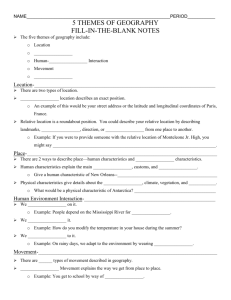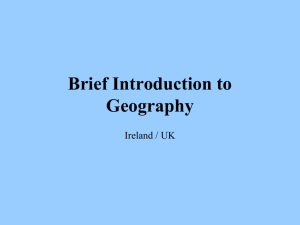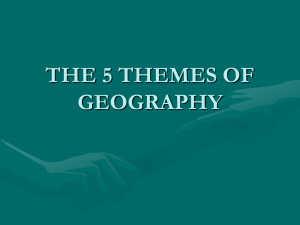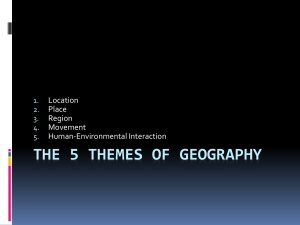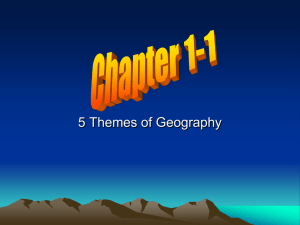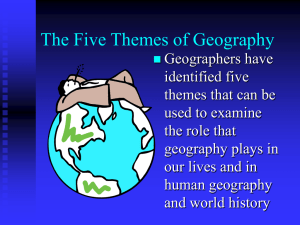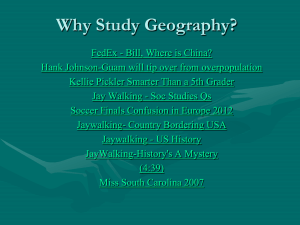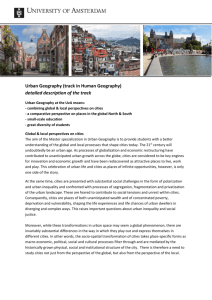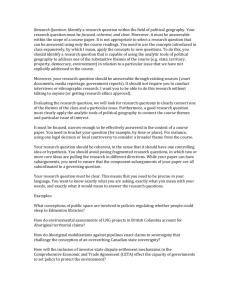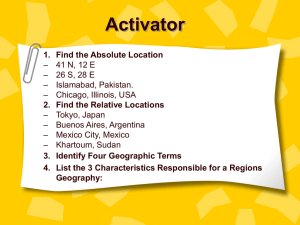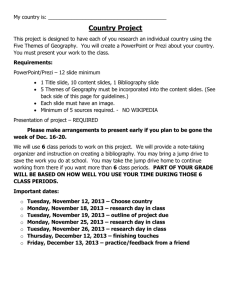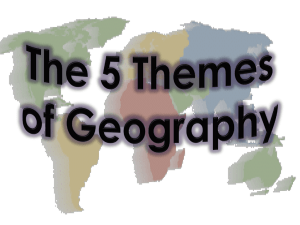6th Grade Social Studies Vocabulary List
advertisement
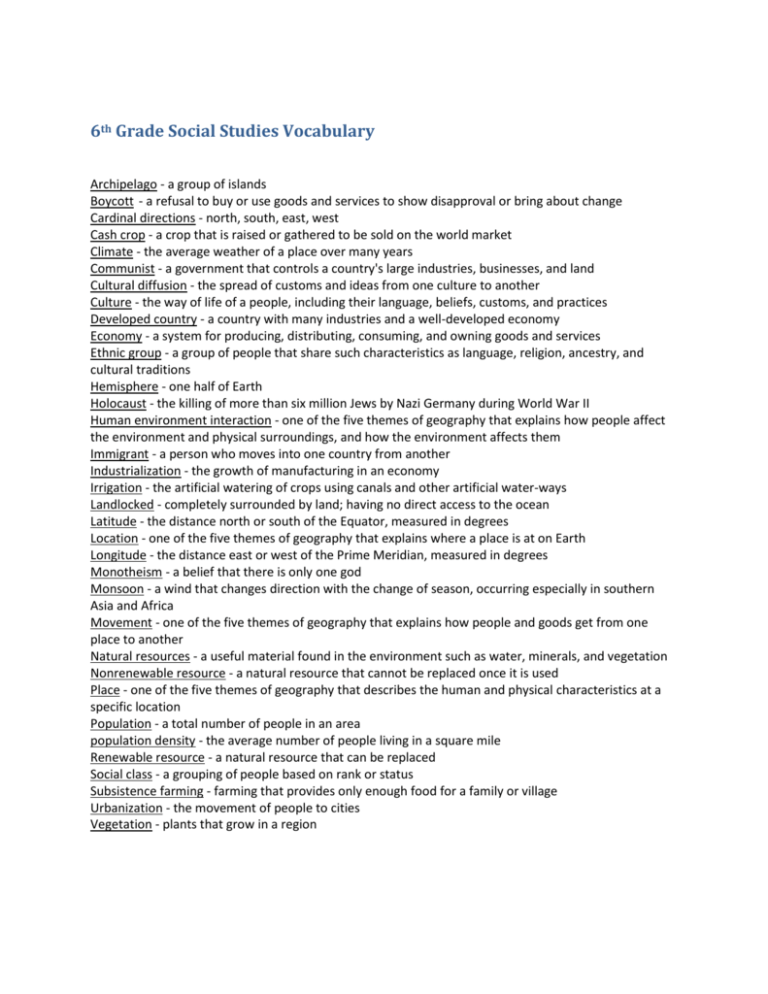
6th Grade Social Studies Vocabulary Archipelago - a group of islands Boycott - a refusal to buy or use goods and services to show disapproval or bring about change Cardinal directions - north, south, east, west Cash crop - a crop that is raised or gathered to be sold on the world market Climate - the average weather of a place over many years Communist - a government that controls a country's large industries, businesses, and land Cultural diffusion - the spread of customs and ideas from one culture to another Culture - the way of life of a people, including their language, beliefs, customs, and practices Developed country - a country with many industries and a well-developed economy Economy - a system for producing, distributing, consuming, and owning goods and services Ethnic group - a group of people that share such characteristics as language, religion, ancestry, and cultural traditions Hemisphere - one half of Earth Holocaust - the killing of more than six million Jews by Nazi Germany during World War II Human environment interaction - one of the five themes of geography that explains how people affect the environment and physical surroundings, and how the environment affects them Immigrant - a person who moves into one country from another Industrialization - the growth of manufacturing in an economy Irrigation - the artificial watering of crops using canals and other artificial water-ways Landlocked - completely surrounded by land; having no direct access to the ocean Latitude - the distance north or south of the Equator, measured in degrees Location - one of the five themes of geography that explains where a place is at on Earth Longitude - the distance east or west of the Prime Meridian, measured in degrees Monotheism - a belief that there is only one god Monsoon - a wind that changes direction with the change of season, occurring especially in southern Asia and Africa Movement - one of the five themes of geography that explains how people and goods get from one place to another Natural resources - a useful material found in the environment such as water, minerals, and vegetation Nonrenewable resource - a natural resource that cannot be replaced once it is used Place - one of the five themes of geography that describes the human and physical characteristics at a specific location Population - a total number of people in an area population density - the average number of people living in a square mile Renewable resource - a natural resource that can be replaced Social class - a grouping of people based on rank or status Subsistence farming - farming that provides only enough food for a family or village Urbanization - the movement of people to cities Vegetation - plants that grow in a region
